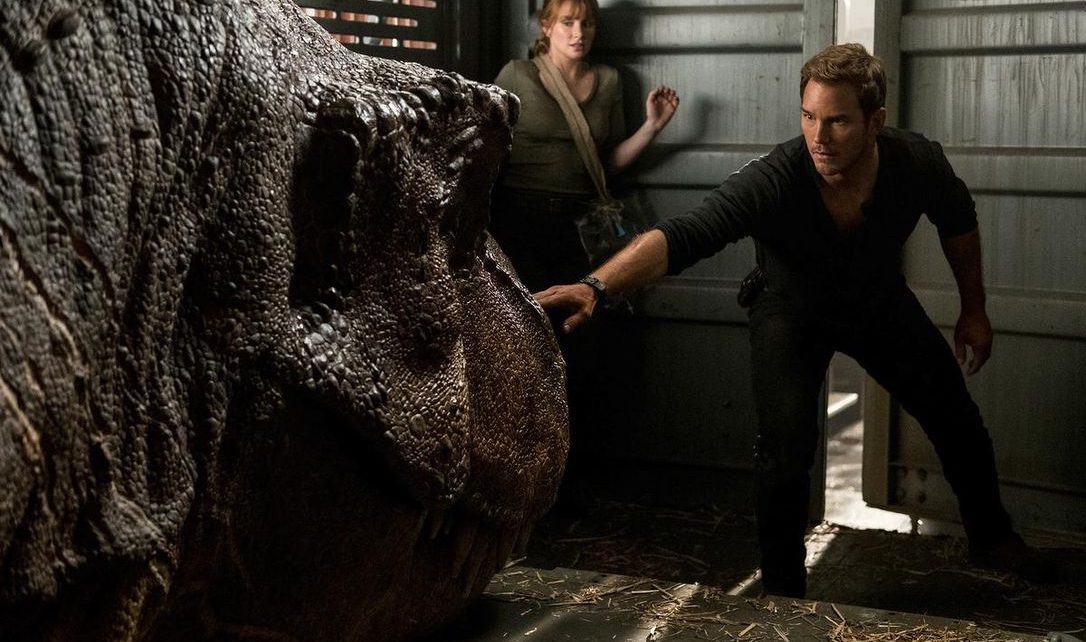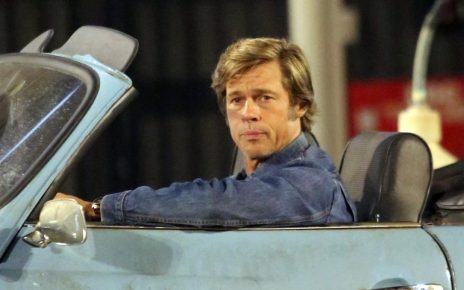By Travis M. AndrewsThe Washington Post
Sun., July 29, 2018
What’s in a name? Would a sequel by any other name rake in the same amount of dough?
This weekend brings us Mission: Impossible — Fallout, and while there is considerable excitement to see Tom Cruise don his Ethan Hunt skills once again, there is a quiet dispute about the grammar in the film’s title. A colon and an em-dash? Or should there be a second colon there? Perhaps just a space?
/https://www.thestar.com/content/dam/thestar/entertainment/movies/2018/07/29/fallout-fallen-kingdom-why-a-sequels-name-means-nothing/fallen_kingdom.jpg)
Punctuation issues aside, Fallout — as the movie is colloquially referred to — is the latest in a series of bland sequel titles that seemingly serve no purpose, aside from jamming the franchise name and a colon in there. Consider the summer’s other big outings: Jurassic World: Fallen Kingdom, Avengers: Infinity War and Sicario: Day of the Soldado. Even ones like Hotel Transylvania 3: Summer Vacation and Solo: A Star Wars Story. They slightly highlight what the movie will be about and feel like the result of a word jumble.
They’re far from the only ones. The titles for sequels to blockbuster films often feel like they were chosen by a strange game of Mad Libs in which studios could only pick from a few stock phrases.
Of course, in sequels things are bound to return — Batman Returns, The Incredible Hulk Returns, The Mummy Returns, Superman Returns. But sometimes, something new might “rise” — 300: Rise of an Empire, Fantastic Four: Rise of the Silver Surfer, G.I. Joe: The Rise of Cobra, Terminator 3: Rise of the Machines. And I’ll be darned if everything isn’t turning into a “legacy” — The Bourne Legacy, Alien Nation: The Udara Legacy, Tron: Legacy. And that’s just to name a few.
Article Continued Below
Apocalypses and armageddons are shockingly common: Resident Evil: Apocalypse, X-Men: Apocalypse, Warlock: The Armageddon.
It’s always the “age” of something or the other: Avengers: Age of Ultron, Transformers: Age of Extinction, The Dark Crystal: Age of Resistance.
And there’s an awful lot of “revenge” going on: Star Wars: Episode III — Revenge of the Sith, Transformers: Revenge of the Fallen, Jaws: The Revenge, A Nightmare on Elm Street 2: Freddy’s Revenge.
Movie sequels used to generally rely on numbers (think: Ghostbusters II, Back to the Future Part II, even the somewhat recent Iron Man 2), but numbers are mostly out of the picture.
“It’s very hard to get people into these serialized movie runs,” if they’ve missed the first movie, Gary Faber, co-founder of research and marketing consulting company ERm and adjunct marketing professor at New York University, told The Washington Post. “The studios said if we stop using the numbers … then we can potentially get in new people. When you have a number in the title, you don’t get new blood.”
And, Faber added: “What do you replace a number with? A senseless phrase.”
Still, the marketing budgets for summer blockbusters such as these can easily exceed $150 million. With so much money, it seems that major studios could shell out a few bucks to have some clever copywriters come up with titles that might stand out among the many worlds and kingdoms that are always rising and falling.
Article Continued Below
So, why don’t they?
“It just doesn’t matter,” Kevin Sandler, the director of film and media studies at Arizona State University, told The Post. “There was a transition from the numbers to these general titles, after the colon. Numbers represent sequels, while titles represent universes.”
Because the phrase itself doesn’t matter, some sequels do get a little wackadoodle with their titles, playing with these conventions to create puns that, depending on your particular constitution, are either cringe- or praiseworthy. Some personal favourites include: Alvin and the Chipmunks: The Squeakquel, Dumb and Dumber To, Gingerdead Man 2: Passion of the Crust, Piranha 3DD, and the two O.G.’s: Speed 2: Cruise Control and Die Hard 2: Die Harder.
“It’s about promising the same thing, but just a little bit different,” Sandler said. “People are buying into the universe rather than buying the title of what the story is going to be about, because they already know what the universe is going to be.”
That said, there’s no hard and fast rule to naming sequels. As Faber said, the Fast and Furious series shows just that. It threw convention out the window of its NOS-fuelled supercars. The movies’ titles appear to follow no pattern whatsoever.
- The Fast and the Furious
- 2 Fast 2 Furious
- The Fast and the Furious: Tokyo Drift
- Fast & Furious
- Fast & Furious 6
- The Fate of the Furious
The third — The Fast and the Furious: Tokyo Drift — might seem to follow a traditional formula for sequel titles, but the fourth is nearly the same title as the first, only it dropped the article “the” and transformed its “and” into an ampersand. Surely there’s a team of mathematicians working around the clock trying to decipher whatever algorithms created these. But what’s important is that the words “Fast” or “Furious” — which might catch the eye of someone scrolling through Facebook — always appear.
So what’s in a name? Not much, as it turns out.
All said, any quest to find the perfect sequel title is probably a pointless affair. After all, what could ever top Rambo: First Blood Part II?
INSIDER MOVIE NEWS, REVIEWS AND SCHMOOZE.
NEW NEWSLETTERLIGHTS, CAMERA, REACTION






